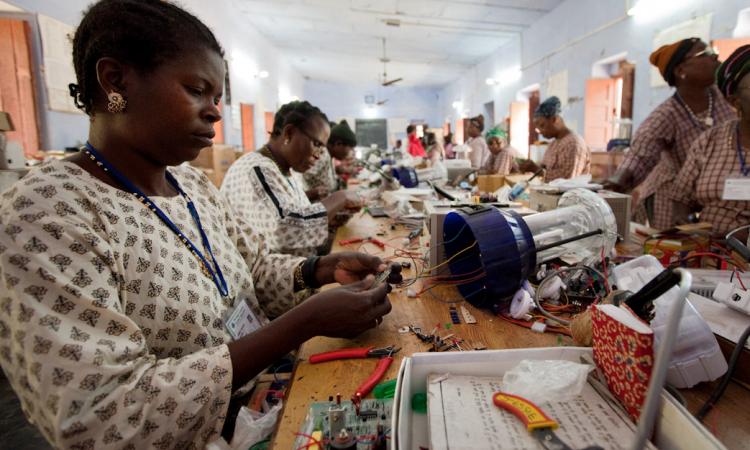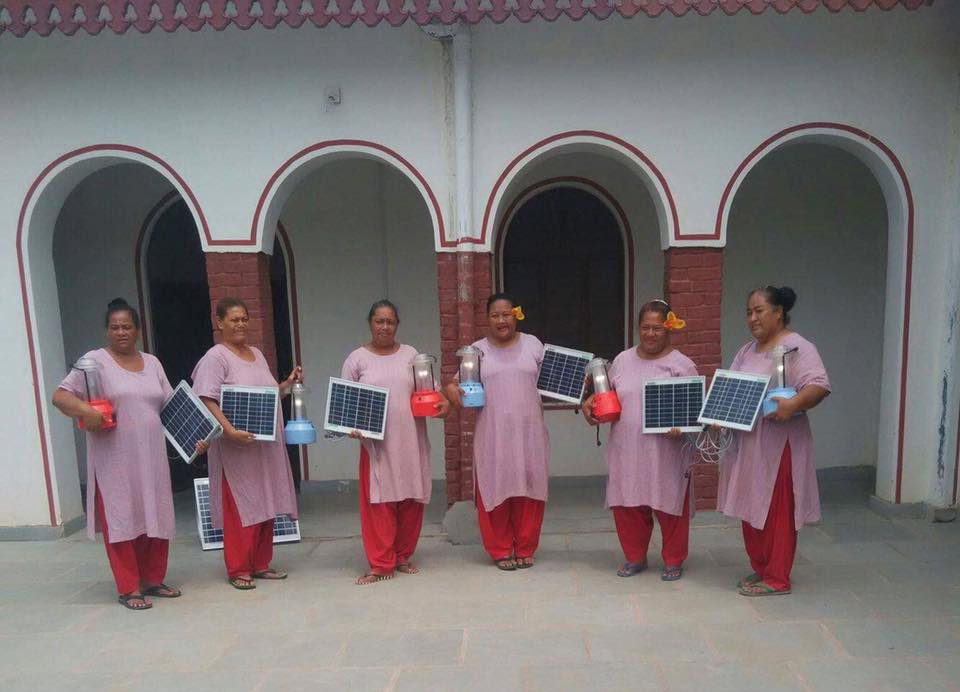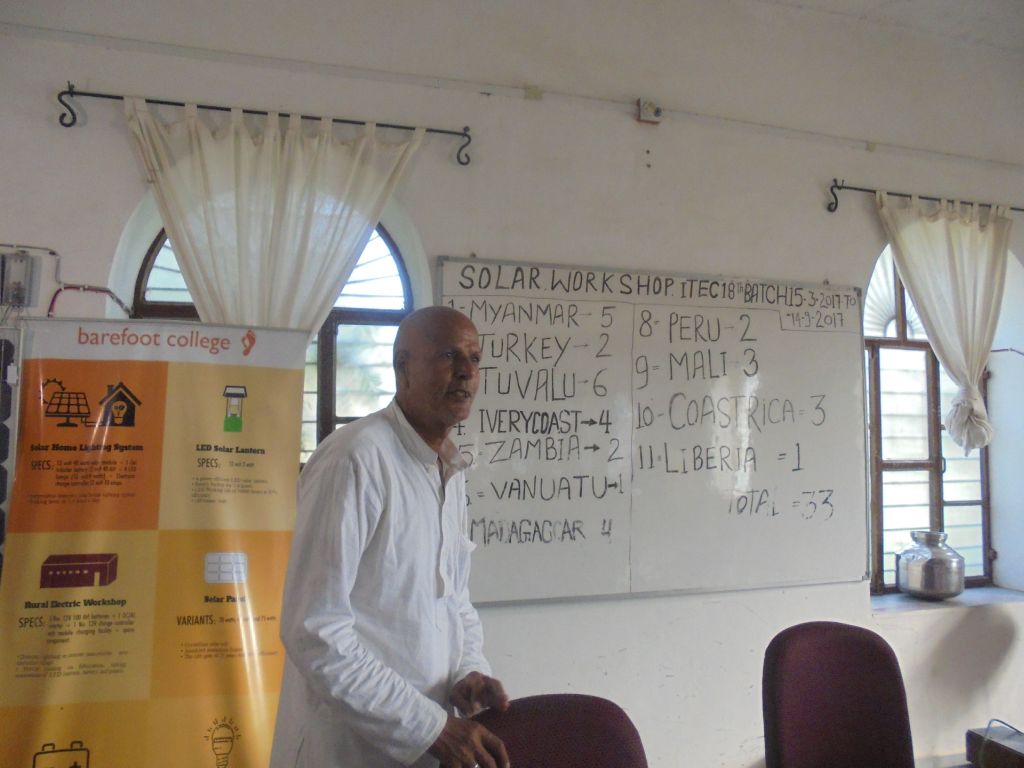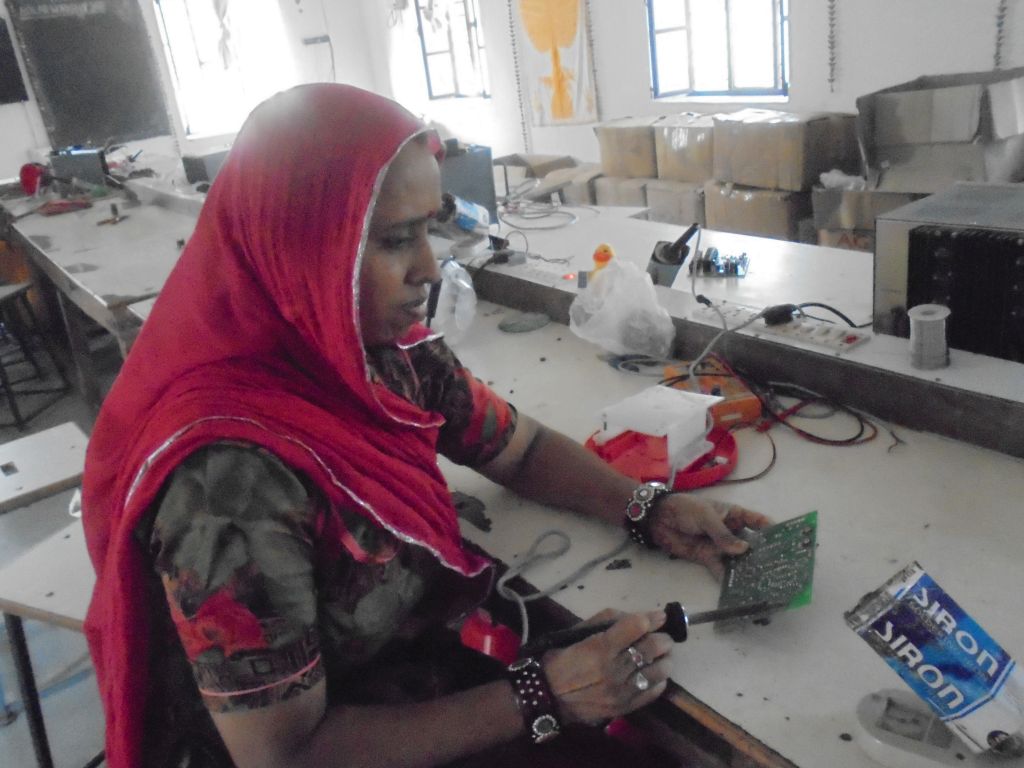
In her mid-30s, Lino Lameko works as an assistant at the office of the national women’s council in Funafuti, the capital of Tuvalu. She has come all the way from the Polynesian island nation located in the Pacific Ocean to Tilonia, a small village located in Ajmer in Rajasthan to become a “barefoot solar engineer”. Tuvalu is a low lying coastal country comprising a set of small islands. Being an island nation, it is concerned about its vulnerability to the adverse effects of global climate change. The rising sea level is a big challenge the country is facing and the government is even considering relocating Tuvaluans to other places.
Quest for renewable energy

Tuvalu is planning to implement 100 percent renewable energy by 2020, using mainly solar photovoltaic (95 percent of demand) and biodiesel (5 percent of demand) energy. The country is serious about sustainable initiatives, solar energy being one of them. This year, it sent six women for the six-month-long international solar training programme held at Barefoot College, Tilonia. After the training, they would become “barefoot solar engineers” to spread awareness about solar energy in their country. The women were selected on the basis that they will use their learning to bring electricity to their homes and villages. Some of them plan to set up a business back home using the knowledge garnered from the programme. The programme is a collaborative effort of the Indian Technical and Economic Cooperation, a division of the Ministry of External Affairs, the Government of India and the governments of other countries interested in the programme.
Lino’s batchmates are mostly semi-literate middle-aged women from inaccessible villages of countries that score low in socio-economic and human development indices like Myanmar, Ivory Coast, Turkey, Peru and Costa Rica. “The countries also fare low in access to the electric grid and mini and off-grid solar options like stand-alone solar panels. They do not require massive investments in transmission infrastructure suited for these areas. We stress on electrification as 1.3 billion people worldwide do not have access to electricity and 85 percent of them are in rural remote areas,” says Bhagwat Nandan, the coordinator of the solar college, fondly known as Guruji.
He heads the training centre and has been associated with Barefoot College since 1975, three years after it was founded. The solar programme was started in the 1990s and went global in 2004. More than 1000 women from remote communities of 83 countries have undergone the six-month training at Tilonia. Women and men from 18 states of India too have been trained here. Two new centres have been opened at Zanzibar and Burkino Faso recently and plans are underway to set up more of these.
“We run two batches in a year. The batch of March to September 2017 comprising 33 women were trained in fabrication, repair and maintenance skills on high technology solar home lighting systems,” says Guruji.
Solar mamas cross barriers to get trained

Fondly called solar mamas, many of them are farmers or homemakers, who have never travelled beyond their villages. Not many of these women have seen a solar light before they came here. Most did not know that electricity can be harnessed from the sun and some are from villages that are completely off the grid.
“It is such an eye-opening experience for these women, to be suddenly brought in contact with an entirely different culture, away from their community and family,” says Sita, a master trainer at the centre, who was a student of the Barefoot College.
Guruji admits that there is a language barrier. But both the trainers and trainees have devised ways to overcome it and have not let that affect the training. “Other than the six women from Tuvalu who understand a bit of English, no woman in this batch is familiar with the language. We use sign language to speak to them. We communicate with them through colour codes which are numerically arranged. Within a few days, they begin to remember the permutation and combination of the wires and the electric circuit and tools without needing to read or write. And at the end of six months, they are able to install, troubleshoot and repair the systems," says Guruji.
Women are assisted by a master trainer who helps them learn to identify and code colours. “This is similar to the training we conduct for people from non-Hindi speaking states of India. We use the same learning method for them,” says Gowardhan, a master trainer at the centre.
Effective allies in going solar

“We have also been developing solar water heaters since 2000 for rural communities so they can heat the water without having to deal with smoke. The fabrication is done by rural barefoot solar engineers at the college. Thousands of households are using the community manufactured solar water heaters,” says Sita, who also coordinates the work of the barefoot solar cooker engineers.
Barefoot College has solar electrified 50,000 houses covering over 500 villages so far. “The reason we choose women, especially middle-aged women, for training is because they maintain strong roots in the community and are likely to utilise their fresh skills for community development. We will be sending them quality components from India so they can start practising as barefoot solar engineers back home. In many households, we have been able to help make a switch to solar lamps from the conventional kerosene lamps that emit thick, toxic smoke and are susceptible to tipping over and starting fires. Also, solar electrification reduces air pollution, decreases CO2 emissions and slows the negative impacts of deforestation,” says Guruji.
The training at Tilonia will be followed by support from Barefoot College to the solar engineers in the form of solar equipment for 120 households in the trainees’ villages, says Guruji. He has travelled to some of these countries helping the solar engineers install and fix solar plants and help them teach other women what they had learned. So far in Zanzibar, 13 solar mamas have electrified more than 600 households. They charge a monthly fee from their customers to install and maintain the solar systems.
Lino admits that it was quite challenging for her to come all the way from home to learn this. “Adjusting to the Rajasthan summer has been tough even when I was used to Tuvalu’s hot, tropical climate with temperatures averaging 30 degrees Celsius,“ she says. “My training is almost over and I have learned to charge controllers and inverters, install solar panels and link them to batteries. I can also build solar lanterns. I plan to set up an electronic workshop for carrying out repairs of the solar power system,” adds Lino.